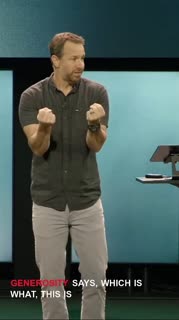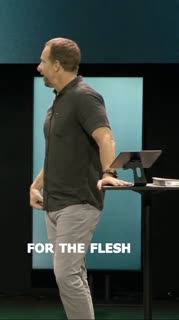Welcome to Outreach Weekend, a time when we focus on one of the core values of our church: generosity and service to the marginalized and under-resourced in our community. We acknowledge that none of us have everything figured out, and our church is a community of people who are works in progress, striving to follow Jesus together. This weekend, we are reminded of the importance of generosity, not just as a means to support the church, but as a spiritual discipline that reflects God's abundance. In a world that often promotes scarcity and fear, we are called to live with open hands, trusting in God's provision.
Generosity is not just about financial giving; it's about a posture of the heart. It's about moving from a mindset of scarcity to one of abundance, where we hold our resources loosely and are willing to share with others. This weekend, we are invited to take a next step in generosity, whether that means giving for the first time or increasing our current level of giving. Our church's approach to funding outreach is unique. We separate our operating budget from our outreach budget to ensure that our support for the marginalized is not compromised by economic fluctuations.
We also explore the theme of honesty and self-deception. We often find ourselves justifying our actions and beliefs to align with our desires, leading to a disconnect between our intentions and our actions. This cognitive dissonance can lead to self-deception, where we convince ourselves of a narrative that allows us to live comfortably with our choices. The Bible calls us to live by the Spirit, which is in conflict with our fleshly desires. The Spirit leads us to love, joy, peace, and self-control, fostering a community that flourishes through other-centered well-being.
As we conclude, we are reminded that where our treasure is, there our heart will be also. Our giving not only reveals the condition of our hearts but also shapes them to align more closely with God's heart for the hurting. We are invited to respond in worship through acts of generosity, trusting that God will use our gifts to make a difference in the lives of those in need.
Key Takeaways
- 1. Generosity is a spiritual discipline that reflects God's abundance. In a world that promotes scarcity, we are called to live with open hands, trusting in God's provision and sharing our resources with others. [26:26]
- 2. Honesty requires an accurate representation of reality. Despite valuing honesty, we often lie to avoid hard truths. This self-deception leads to a disconnect between our intentions and actions, creating cognitive dissonance. [31:54]
- 3. Our internal selfishness often leads us to justify our actions and beliefs. The Bible calls us to live by the Spirit, which is in conflict with our fleshly desires, leading to a life of love, joy, peace, and self-control. [48:19]
- 4. Our giving reveals and shapes the condition of our hearts. By directing our treasure towards God's work, we align our hearts with His, particularly in serving the marginalized and under-resourced. [64:48]
- 5. Worship is not just about music; it's about making God the most important thing in our lives. Our acts of generosity are a form of worship, reflecting our belief in God's abundance and our commitment to His mission. [01:08:22]
** [68:22]
Youtube Chapters
- [00:00] - Welcome
- [00:45] - Introduction to Outreach Weekend
- [03:30] - The Heartbeat of Our Church
- [07:15] - Generosity as a Spiritual Discipline
- [12:00] - The Challenge of Honesty
- [16:45] - Cognitive Dissonance and Self-Deception
- [22:30] - The Conflict Between Flesh and Spirit
- [28:00] - The Role of the Holy Spirit
- [33:00] - The Impact of Generosity
- [38:45] - Unique Approach to Outreach Funding
- [44:30] - Aligning Our Hearts with God's
- [50:00] - Worship Through Generosity
- [55:15] - Closing Prayer and Blessing
- [60:00] - Call to Action and Community Impact
- [65:30] - Final Words and Dismissal




